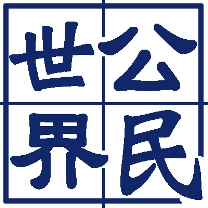趕案子趕了一上午很疲倦,Sandy想去買杯咖啡,她順道問一下英國籍同事,要不要幫他帶一杯。同事回答:“Yeah, it's right up my street.” Sandy心想,同事要求也太多,她只想去超商,但同事還叫她去哪個街上買咖啡?
其實,Right up my street不是哪一條對的街,今天來看看street在商業英文裡的妙用。
It's right up my street.
(X)剛好在上面那一條街。
(O)這正合我意。
up my street或再加上一個right加強語氣,是指「正合我意;正是我喜歡的」;美國人也會用up my alley,alley是巷子、street是街,意思差不多。這是很常用的口語表達方法,來看例句:
I have a little job for you which is right up your street.
(我有些非常適合你的工作給你做。)
We are streets ahead.
(X)我們在街頭。
(O)我們遙遙領先。
be streets ahead字面意思是「超出幾條街」,用來比喻「遠比其他人優秀」,也就是遙遙領先。相當於be better than,而be streets ahead之後的介系詞用of,來看用法:
The latest sales figures show that we're streets ahead of the competition.
(最新銷售數字顯示,我們在競爭中遙遙領先。)
This computer system is certainly streets ahead in terms of cost and performance.
(就CP值來說,這個電腦系統比其他的好太多了。)
On the street it goes for about USD$400.
(X)到街上去買是400美元。
(O)折扣價是400美元。
on the street(s)有很多意思,用於「人」和「物」時,意思不一樣。
說某人on the streets,指「流落街頭」,例如:
Some of these people have been living on the streets for years.
(這些人中有一些已經流落街頭好幾年了。)
商品on the streets,意思是「折扣價、低於定價」,例如:
It lists at USD$2,200 and can be got for about $1,650 on the street.
(牌價是2200美元,折扣後可以到1650元。)
On the street還有一個用法,指「廣為宣傳、人盡皆知」,例如:
Word on the street is that the company is going out of business.
(大家都說這家公司要倒了。)
責任編輯:倪旻勤
核稿編輯:陳瑋鴻



